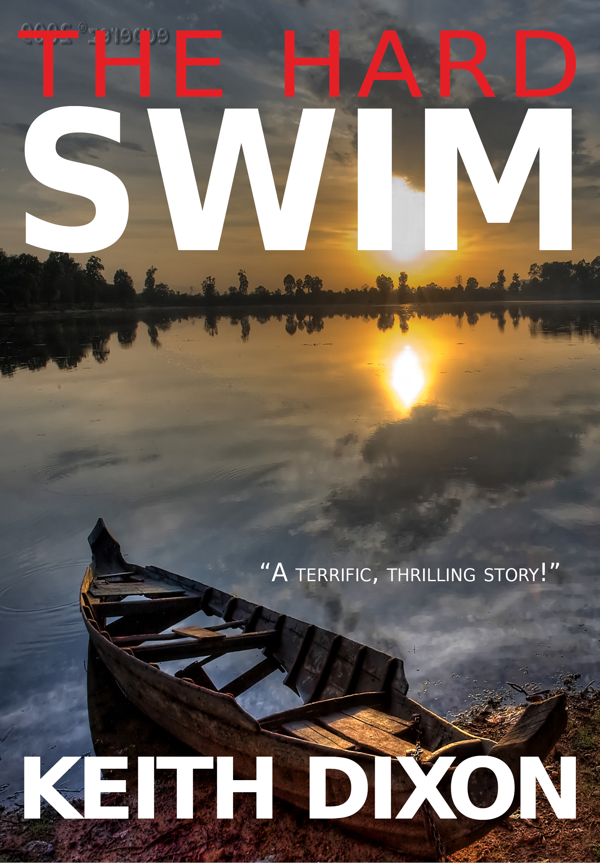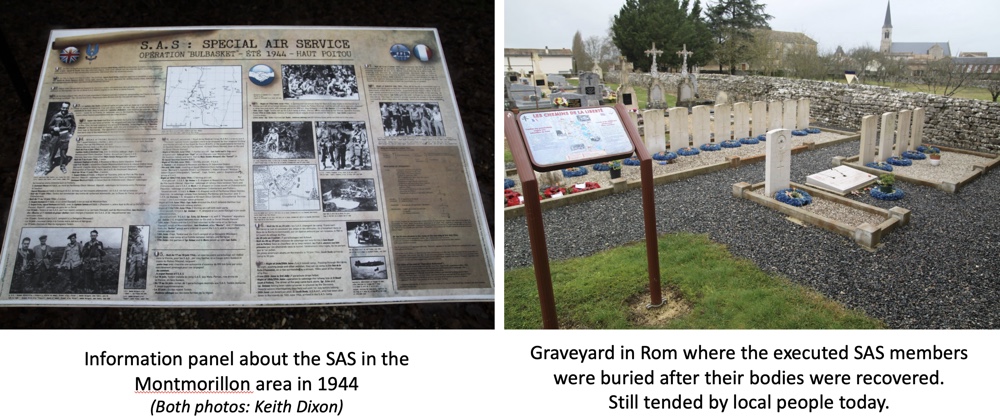 I’m delighted to welcome crime writer Keith Dixon to the writing blog as the latest guest in the ‘writers abroad’ series. We actually met up in 2019 in Montmorillon, where Keith lives and which turns out to be pivotal to this post… Keith was born in Yorkshire and grew up in the Midlands. He’s been writing since he was thirteen years old in a number of different genres: thriller, espionage, science fiction, literary.
I’m delighted to welcome crime writer Keith Dixon to the writing blog as the latest guest in the ‘writers abroad’ series. We actually met up in 2019 in Montmorillon, where Keith lives and which turns out to be pivotal to this post… Keith was born in Yorkshire and grew up in the Midlands. He’s been writing since he was thirteen years old in a number of different genres: thriller, espionage, science fiction, literary.
Two-time winner of the Chanticleer Reviews CLUE First in Category award for Private Eye/Noir novel, he’s the author of ten full-length books and one short-story in the Sam Dyke Investigations series and two other non-crime works, as well as two collections of blog posts on the craft of writing and a series of videos. His new series of Paul Storey Thrillers began in 2016 and there are now three books in the series.
Over to Keith!
My interest in France began when I was 10 years old. My junior school in Coventry was one of the first to introduce French-language teaching, which they did by importing an American teacher to give us an hour a week to point at a wall and say, ‘le mur’ and then point at a window and say ‘la fenêtre’. He also arrived with armfuls of Paris Match magazines, of which I took half a dozen copies home to look at the pictures. France was a strangely captivating country, at least according to the photographs.
I later took ‘O’ and ‘A’ level qualifications in French and made my first trips to France when I was 18 and then 19. It was still the era of the franc, and being limited to taking the equivalent of £50 into the country – in my case, hoping to make that last 3 weeks, topping up with travellers’ cheques if necessary. (Do they even still exist?) With two friends I travelled through the country marvelling at how different the pronunciation of the language was by real French people compared to that of my teachers in England. When did ‘vingt’ become ‘vengt’?
But my ambition to live in France as a writer was crystalised by watching a TV programme. It was an interview with Lawrence Durrell, brother of the more famous Gerald, but well-known nonetheless as a writer of literary novels like those contained in The Alexandria Quartet. I don’t remember much about the interview, but I do recall the final shot: Durrell, in the paved courtyard of his (presumably rented) château, sitting on a chair in nothing but his shorts, typing away on an old upright typewriter while taking in the glorious sunshine. I thought: ‘That’s the life for me!’
Half a century on, it came to pass!
I started writing short stories and play scripts in my mid-teens, and later took a degree in Creative Writing and Drama. I wrote 7 full-length novels between the ages of 20 and 22 and while I had an agent, I couldn’t quite get traction. And then life intervened and I had to make a living. As it happened many of the jobs I took had creative writing as one of their components – proofreader, copywriter, online editor, elearning creator, management course designer.
And eventually I was able to begin coming over to France again, making the move permanent at the end of 2015.
By this time I’d started writing a series of novels based on a British private eye living in the North West of England—Sam Dyke. Although I’d taught ‘serious’ literature for a while (one of the jobs that didn’t involve my own writing!), most of my own reading for pleasure had become American crime writing. So when I returned to writing myself I wanted to write in that genre and thus invented this Yorkshire PI working in the posh suburbs of Cheshire.
And the connection with the SAS in Vienne, 1944?
And then … I was staying in the Vienne, in central France, when I went for coffee with friends in a café and met an Englishmen touring the area by bicycle. He told us why he was here, mentioning an operation from World War II called Operation Bulbasket. This was one of the newly-formed SAS’s first operations, taking place slightly before and then after D-Day, 6 June 1944. A cadre of SAS soldiers was parachuted into the area around Montmorillon with instructions to impede the process of German reinforcements as they headed north to combat the British and American troops landing in Normandy. They ended up bivouacking in the nearby forest of Verrières, from which they carried out a number of sabotage operations on German rail and road transport. It seemed they were eventually betrayed and 30 British soldiers and 1 American airman were executed and buried.
As all writers recognise, hearing this story immediately set the creative juices flowing! Although my PI was definitely based in the UK, in contemporary times, I worked out a plot that had a ‘backstory’ involving a Frenchman working with the maquis in 1944, a secret letter from Churchill, and another well-known story from WWII, the sinking of a steamer called The Struma which was carrying nearly 800 Jewish refugees from Romania to Palestine when it was sunk in the Black Sea, leaving only one survivor. I visited the sites where the SAS had lived, and where they had died. In the book I used my knowledge of Montmorillon and other local villages.
The resulting book was called The Hard Swim, and takes place in Edinburgh, Crewe, Portsmouth and Montmorillon, and wouldn’t have been written had I not happened to be in Montmorillon, taking coffee with friends, and hearing this story from a descendant of one of those executed in a forest in 1944.
What a story of bravery and sacrifice. Thank you so much, Keith. Montmorillon is such a pretty and peaceful town today. Known as ‘la cité de l’écrit’ (city of writing), it has countless bookshops, a book-oriented cultural life and a typewriter museum!
————
Connect with Keith
Website: www.keithdixonnovels.com
Blog: www.cwconfidential.blogspot.com
Twitter: https://twitter.com/keithyd6 @keithyd6
Facebook: https://www.facebook.com/idlewriter
Instagram: https://www.instagram.com/theidlewriter/
YouTube Channel: Crime Writing Confidential:
https://www.youtube.com/channel/UCGIWF78f9rxuZGOAZpP-6Yw
————
Read The Hard Swim
 FEBRUARY 1942: The Struma, a broken-down steamer, explodes and sinks in the Black Sea, drowning 768 Rumanian Jews fleeing the Nazis and heading for Palestine, and safety.
FEBRUARY 1942: The Struma, a broken-down steamer, explodes and sinks in the Black Sea, drowning 768 Rumanian Jews fleeing the Nazis and heading for Palestine, and safety.
JUNE 1944: Thirty-one SAS soldiers are captured behind enemy lines and are forced to dig their own graves before being shot and buried in a forest in the heart of France.
SEVENTY YEARS LATER: A young woman is attacked in the grounds of Edinburgh Zoo – the attacker seeking the document that might link these two wartime events.
Private Investigator Sam Dyke becomes involved in unravelling a mystery that dates back to the Second World War. He rescues a woman who’s on the point of being abducted and, for all he knows, murdered. He helps the woman, Chantal Bressette, escape, subsequently learning that she’s carrying a document of vital importance to a group of powerful people.
Sam Dyke discovers he’s the only one who can stop them.
Based on true events, and with action ranging from Edinburgh through to a quiet village in the centre of France, The Hard Swim pits Sam Dyke against his toughest opponents yet—an experienced team of killers backed by a ruthless MP about to ascend to one of the great roles of state.
Buying link: (ebook) http://authl.it/B00BL9FUOU?d
Keith’s Amazon page: https://www.amazon.co.uk/Keith-Dixon/e/B0034OO9BK
Alison Morton is the author of Roma Nova thrillers – INCEPTIO, CARINA (novella), PERFIDITAS, SUCCESSIO, AURELIA, NEXUS (novella), INSURRECTIO and RETALIO, and ROMA NOVA EXTRA, a collection of short stories. Audiobooks are available for four of the series. Double Identity, a contemporary conspiracy, starts a new series of thrillers.
Find out more about Roma Nova, its origins, stories and heroines and taste world the latest contemporary thriller Double Identity… Download ‘Welcome to Alison Morton’s Thriller Worlds’, a FREE eBook, as a thank you gift when you sign up to Alison’s monthly email newsletter. You’ll also be among the first to know about news and book progress before everybody else, and take part in giveaways.















Leave a Reply